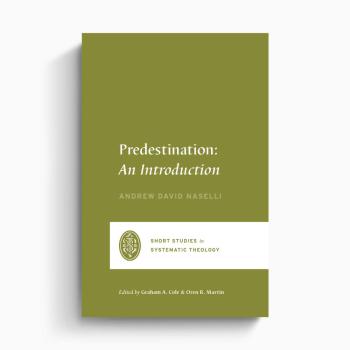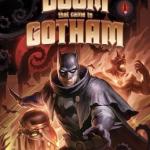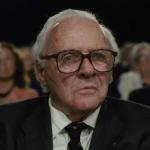Review of Jesus Christ and the Life of the Mind by Mark Noll
By PAUL D. MILLER
I previously blogged sympathetically about Mark Noll’s indictment of evangelical stupidity in his book The Scandal of the Evangelical Mind. That post spurred a bit of debate (see my friend Owen Strachan’s response, and Carson Clark’s response to Owen). For my part, it seems only fair to consult Noll’s follow-up work, Jesus Christ and the Life of the Mind, in which he attempts to set out a positive agenda for Christian thinking.
Noll’s thesis is that a proper understanding of Christology should lead Christians to value thinking and practice it diligently. Oddly, Noll goes back to the Apostles’ and Nicene Creeds, and spends an unnecessary chapter narrating how the creeds came about before getting to his argument.
That argument comes in chapter 2. Here Noll lays out the main reasons Christians should care about thinking, and begins every reason with Jesus. Jesus made the world, so we should care about the world. Jesus holds all things together, so studying the world is studying “the effulgence of Jesus Christ.” (28) Jesus became a man, thus giving immeasurable dignity and worth to mankind and the creation to which we belong. Jesus has given us the rights of children of God, which includes “the opportunity to take pleasure in what God is and what he has done,” including his creation. (35) Jesus Christ is beautiful and the source of all beauty, so to study and create beautiful things is to know Jesus better. (He says later that “narrative is basic to human expression, … [and] atonement involves tremendous complexity. … [therefore,] the best narratives will be morally complex” (71)—a good rule of thumb for Christians who presume to review books and movies.) He summarizes:
It is part of the deepest foundation of Christian reality—it is an important part of understanding who Jesus is and what he accomplishes—to study the world, the human structures found in the world, the human experiences of the world, and the humans who experience the world. (41)
These arguments struck me as good, true, and, perhaps, a little obvious. (That Noll felt it necessary to point out the obvious is, of course, a reflection of his estimation of the evangelical mind). Noll might have made the even more obvious point that God designed us to be stewards of his creation, which role demands careful study of that creation. Because knowing creation and caring for it are primary means of glorifying God, they are nothing less than the purpose of our lives.
Noll then spends a couple chapters extrapolating a few less obvious conclusions about the nature of thinking. Here his argument grows more complex. He argues, for example, that because Jesus is both fully divine and fully human—a seeming contradiction that we cannot fully understand—we should expect to find aspects of reality that, though they appear to contradict one another, are nonetheless true, including “historical interpretations that find two or more plausible explanations for the same event … [and] theories of human behavior stressing sometimes free choice and sometimes determined action.” (49)
I intuitively agreed with Noll’s epistemological point (that we should allow our minds to grasp seemingly contradictory viewpoints simultaneously on the understanding that they might both be, in different ways, accurate). But it felt like a theological stretch to connect this idea to Christology. Upon reflection, however, I think he is absolutely right. If his epistemological point is true, it can only be true because it is rooted in some aspect of God’s character. If we cannot find a theological grounding for it, it must not be true. If we take seriously the idea that Jesus made everything and holds everything together, then we should expect to see reflections of his person and his (dual) nature shot all the way through his world.
Noll then delivers the goods with a trio of chapters applying his insights to specific academic disciplines. As a social scientist with fancy degrees from highfalutin universities, I was especially interested in his chapter on history, much of which could easily be applied to the whole field of social science. I underlined almost the entire chapter.
He argues quite forcefully that real knowledge is possible (contrary to the contentions of postmodernists), but that it is never perfect, complete, or transcultural (contrary to the acolytes of the Enlightenment). We can and should write history (and do social science of all kinds) in the confidence that it is worthwhile—we can make genuine discoveries and make real contributions to human knowledge. But we should also do all of this with humility, never succumbing to the belief that we can wholly escape from our own biases, particular viewpoints, or historical circumstances.
Noll then argues at length that we should never presume to be able to trace the hand of providence in human history, at least not with any degree of confidence. Some historians (and many more talking heads) happily interpret human events—for example, American history—as the outworking of God’s plan for humanity. To be sure, God does have such a plan but, as Noll rightly points out, it is his plan, not ours, and we should not presume that we’ve inferred the final design of the plan. Again, this is an obvious point, but one often ignored, especially by enthusiasts of end-times prophecy.
I’ve only scratched the surface of this book. The chapter on science is challenging. The chapter on Biblical interpretation is dense and difficult, and I felt that Noll was contributing to a highly-controversial argument with which I am only faintly familiar. He concludes with a postscript about the state of the evangelical mind today—nearly twenty years after his earlier book—that is more optimistic. This is a short book (167 pages) but immensely rewarding.












